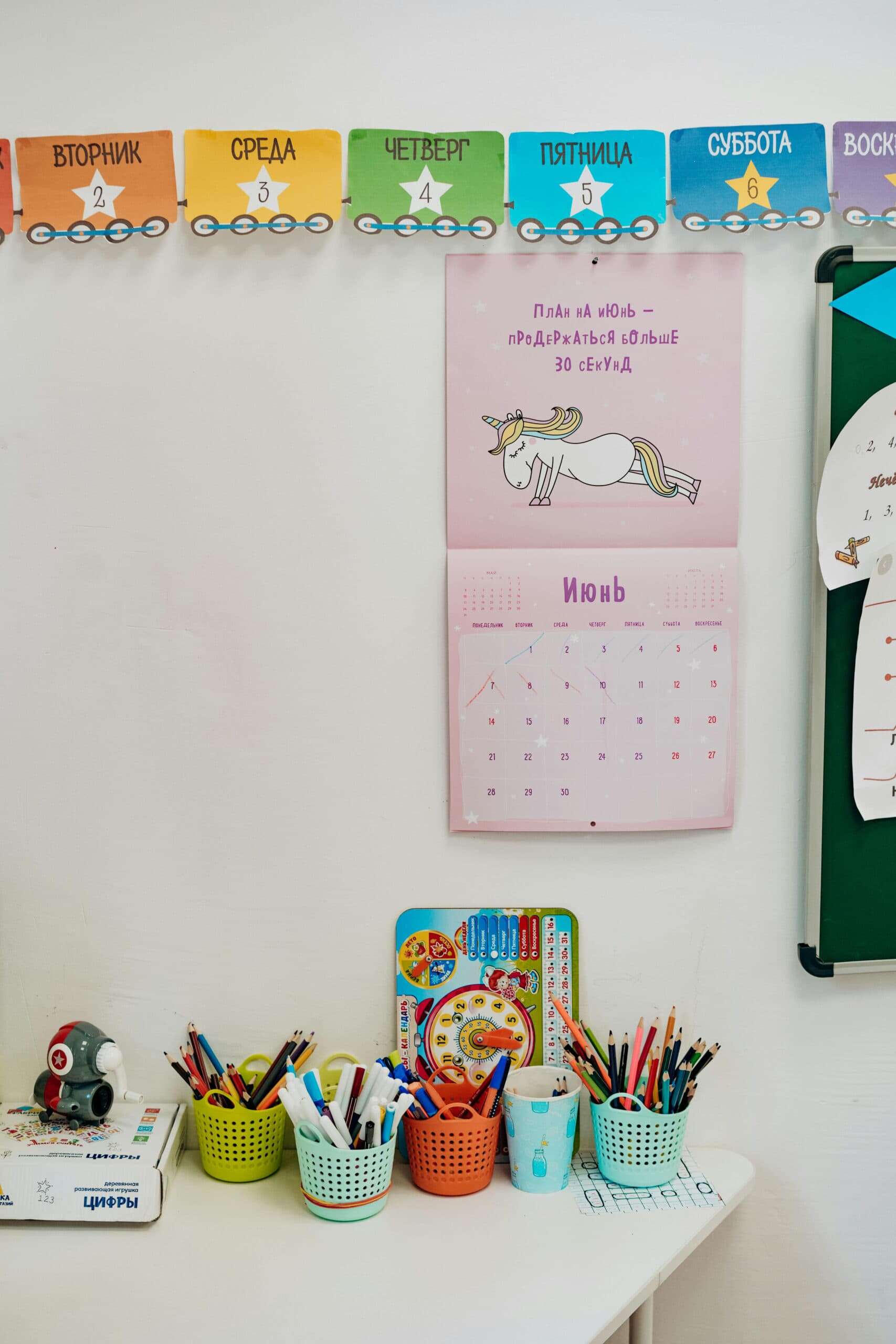The Parenting Strategies That Actually Work for Neurodivergent Kids
Neurodivergent children, including those with autism, ADHD, dyslexia, and other differences, each experience the world in unique ways. These differences often bring social, emotional, and sensory challenges that require support beyond traditional parenting methods. Embracing tailored, compassionate strategies is crucial for their well-being and development. As we learn more about neurodiversity, it becomes clear that flexible, evidence-based approaches help families thrive, fostering environments where neurodivergent kids feel understood, accepted, and empowered.
1. Embrace Strength-Based Approaches

Focusing on what neurodivergent children excel at—like creativity, unique problem-solving, or a remarkable memory—cultivates self-esteem and a sense of accomplishment. This approach shifts the narrative from deficits to abilities, helping kids build confidence and resilience. Celebrating these strengths, whether it’s artistic talent or attention to detail, is more motivating and empowering than only addressing difficulties. Learn more about the benefits of strength-based strategies from Understood.org.
2. Use Visual Schedules and Supports

Visual schedules—such as picture charts, illustrated checklists, or color-coded calendars—help neurodivergent children understand daily routines and anticipate transitions. These supports are especially valuable for kids who find verbal instructions overwhelming or confusing. Compared to verbal-only cues, visual aids provide clear, consistent reminders, promoting independence and reducing anxiety about what comes next. For more on effective visual supports, visit Autism Speaks: Visual Supports.
3. Prioritize Predictability and Consistency

Consistent routines and clear rules provide a sense of security for neurodivergent children, who often feel overwhelmed by unpredictability. Establishing regular schedules—such as structured bedtime rituals or set meal routines—can significantly reduce anxiety and prevent meltdowns. In contrast, chaotic or unpredictable environments may heighten stress and behavioral challenges. Maintaining predictability helps children know what to expect, fostering calm and confidence. Learn more about the benefits of structure at Raising Children Network.
4. Practice Collaborative Problem-Solving
Involving neurodivergent children in finding solutions empowers them and fosters self-advocacy. Collaborative problem-solving means discussing triggers for outbursts, listening to their perspectives, and brainstorming coping strategies together. This respectful approach helps children feel heard and valued, while teaching vital life skills for managing challenges. Examples include jointly identifying stressors or co-creating a calm-down plan. For more on this method, visit Lives in the Balance: Collaborative & Proactive Solutions.
5. Respect Sensory Needs

Recognizing and accommodating sensory sensitivities helps neurodivergent children feel comfortable and safe. Simple adjustments—like dimming lights, reducing background noise, or choosing soft clothing—can make a big difference compared to overstimulating environments. Sensory-friendly spaces lower distress and foster focus, while tools such as noise-canceling headphones or fidget toys provide additional support. Prioritizing sensory needs shows respect and empathy. Discover more about sensory-friendly strategies from Sensory Friendly Solutions.
6. Use Clear, Concrete Communication

Neurodivergent children often benefit from direct, literal language rather than abstract or ambiguous communication. Avoiding metaphors, idioms, or sarcasm helps prevent misunderstandings—saying “Please put your shoes by the door” is clearer than “Get ready.” Step-by-step directions further support comprehension and independence. In contrast, vague instructions can cause confusion and frustration. For more tips on effective communication, explore The National Autistic Society’s advice.
7. Model Emotional Regulation

When parents demonstrate calm responses to stress—such as practicing deep breathing or openly verbalizing emotions—they teach neurodivergent children valuable coping skills. Modeling self-regulation, rather than reacting punitively or with frustration, helps kids learn to manage their own feelings. For example, saying, “I feel frustrated, so I’m taking a few deep breaths,” sets a positive example. This approach builds emotional intelligence and resilience. Learn more at Child Mind Institute: Teaching Kids About Emotions.
8. Offer Choices Within Boundaries

Empowering neurodivergent children with controlled choices—such as selecting between two snacks or choosing which activity to do first—fosters autonomy without sacrificing structure. This balanced approach stands between rigid rules, which can feel restrictive, and overly permissive parenting, which may cause confusion. Offering options within set limits helps kids feel respected and involved while providing clear boundaries. Read more about this effective strategy at Penn State Extension: Giving Choices.
9. Celebrate Progress, Not Just Outcomes

Acknowledging effort and small milestones helps neurodivergent children develop confidence and motivation. Praising persistence—like trying a new food or practicing a skill—reinforces that effort matters, not just end results. This contrasts with only rewarding final achievements, which can be discouraging. Using growth mindset language, such as “You worked really hard on that,” nurtures resilience and a love of learning. Explore more about fostering a growth mindset at Psychology Today.
10. Encourage Special Interests

Supporting a neurodivergent child’s hobbies or fixations—like trains, dinosaurs, or art—can be both motivating and comforting. Integrating these interests into learning activities or daily routines fosters engagement and joy. For instance, using favorite topics in reading or math lessons boosts participation. In contrast, dismissing or discouraging special interests can lead to frustration or withdrawal. Embracing these passions shows respect and builds connection. Learn more at The National Autistic Society: Special Interests.
11. Build Downtime Into the Day

Scheduled breaks are essential for neurodivergent children to prevent sensory or emotional overload. Providing quiet corners, mindfulness activities, or simple rest periods allows kids to recharge and self-regulate. This structured downtime is far more effective than packing the day with back-to-back activities, which can lead to overwhelm and meltdowns. Purposeful pauses help maintain balance and well-being. Find more on the importance of downtime at ADDitude Magazine: The Value of Downtime.
12. Connect With Support Networks

Engaging with support networks—such as community groups, therapy, or online forums—offers valuable understanding and resources for families of neurodivergent children. Sharing experiences with others in similar situations can provide reassurance, practical tips, and emotional relief, contrasting sharply with the isolation many families may feel. Support groups and professional guidance build resilience and help parents navigate challenges together. Explore helpful resources at Autism Speaks: Community Connections.
13. Adapt Discipline to Individual Needs

Traditional discipline like time-outs or punishment may not address the unique needs of neurodivergent children. Instead, using positive reinforcement, natural consequences, and personalized strategies promotes learning and growth. For example, praising desired behaviors or allowing logical outcomes helps children understand expectations without shame. These approaches are often more effective and supportive than rigid discipline. For more on adapting discipline, visit Verywell Mind: Discipline Strategies for Children With Autism.
14. Foster Self-Advocacy Skills

Teaching neurodivergent children to express their needs encourages confidence and independence. Practicing how to ask for breaks, request accommodations, or communicate discomfort empowers kids to take charge of their well-being. This approach is far more beneficial than always speaking for the child, which can limit their growth and self-assurance. Building self-advocacy skills prepares them for future challenges. Learn more about supporting self-advocacy at Autism Speaks: Self-Advocacy Skills.
15. Practice Patience and Flexibility

Neurodivergent children often progress at their own pace, requiring parents to practice patience and adjust expectations. Being willing to adapt plans—such as changing activities if a child is overwhelmed—demonstrates understanding and support. This flexible approach is far more effective than strictly adhering to routines or expectations, which may increase stress for both parent and child. Embracing patience helps create a positive, responsive environment. Find tips on flexibility at Understood.org: Flexibility for Kids.
16. Seek Professional Guidance When Needed

Consulting therapists, educators, or specialists provides neurodivergent children with tailored support and strategies that families may not develop alone. For example, working with occupational therapists can address sensory challenges, while behavioral specialists offer guidance on managing behaviors. Seeking professional help ensures interventions are evidence-based and individualized, contrasting with the uncertainty and stress of navigating challenges without expert input. Learn more about professional resources at CDC: Autism Treatment and Intervention Services.
Conclusion

Compassionate, individualized strategies are essential for supporting neurodivergent children as they navigate a world not always designed with their needs in mind. The most effective parenting approaches are grounded in understanding and honoring each child’s unique strengths, challenges, and perspectives. Persistence, ongoing learning, and celebrating every step—no matter how small—are vital to fostering growth and resilience. For more guidance on supporting neurodivergent kids, explore resources from Understood.org and Child Mind Institute.
.article-content-img img { width: 100% }





